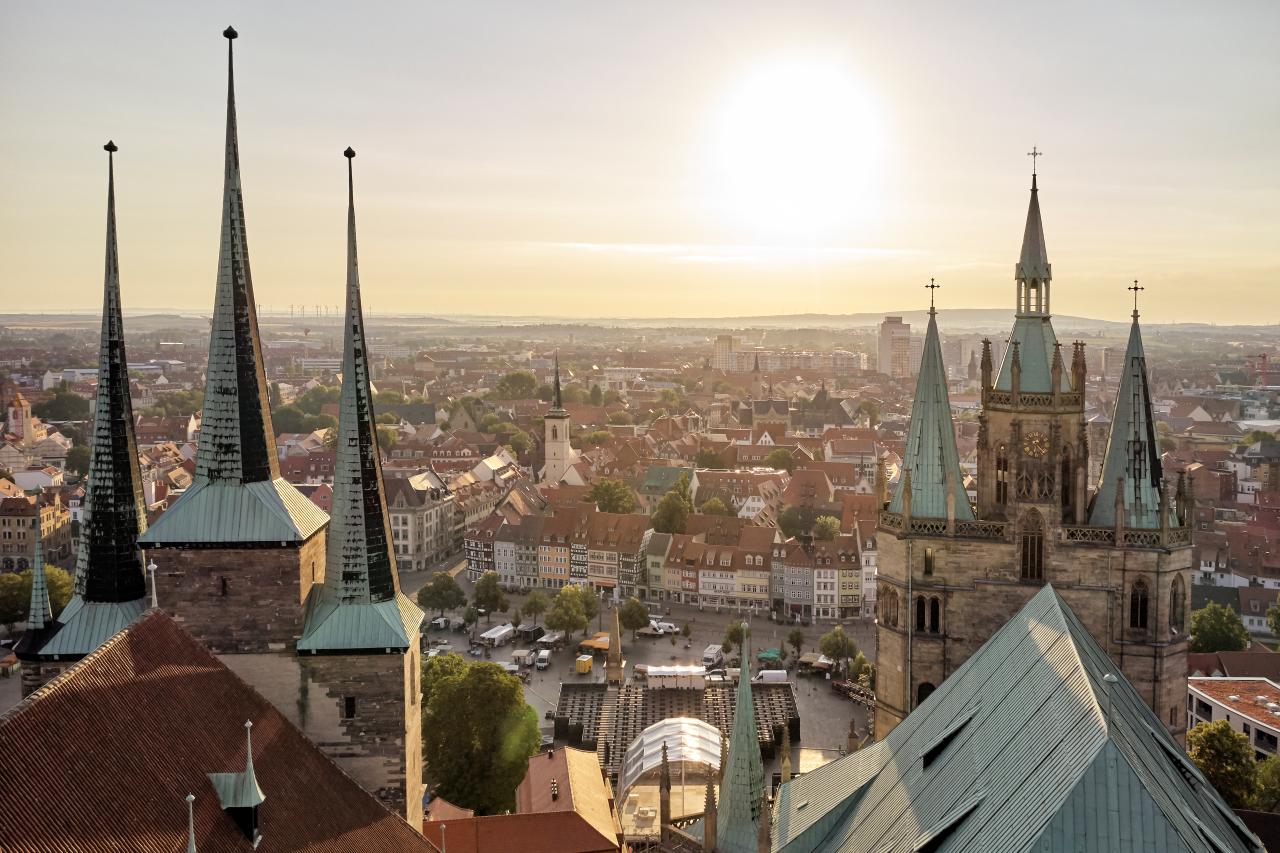Find the appropriate contacts for all issues associated with foreign markets' marketing and other b2b objectives. Right here!
THÜRINGEN Exklusiv
Next date: 13 - 16 May 2025
Themed: ‘Historic theatres and garden culture in Thuringia’
The theme is related to the 200th anniversary of the birth of the ‘theatre duke’ George II of Saxe-Meiningen next year and the Thuringian State Garden Show in Leinefelde-Worbis in 2026. Please note that this is an event addressed to a German-speaking audience.
Details and the opportunity to register will be available here shortly. For enquiries in the meantime, please do not hesitate to get in touch with us.
Great heritage on a small territory
Thuringia's wealth of gardens and theatres
What used to make travelling through the Thuringian countryside difficult is now an advantage for tourists. The density of residences with everything that goes with them, and the proximity of these places to one another, makes it possible to enjoy a variety of
experiences in a limited time. City and countryside can be quickly combined. Short distances lead from palace to palace.
Thüringer Tourismus GmbH is taking 2026 as an opportunity to focus on historic theatres and gardens. The occasions are the 200th birthday of Duke George II of Saxe-Meiningen and the Thuringian State Garden Exhibition 2026 in Leinefelde-Worbis.
The Meiningen ‘theatre duke’
Duke Georg II of Saxe-Meiningen is also known as ‘the theatre duke’. He was a reformer and patron of the theatre arts. At his court theatre in Meiningen, today the Meiningen State Theatre, the now world-wide used practice of the director's theatre was invented. The duke was personally committed to create high-quality performances. He contracted famous actors of the time and had sophisticated sets, costumes and scenery made. The Meiningen Court Theatre was known throughout Europe in the 19th century, not least due to its guest performances in London, Vienna, Stockholm, Moscow, St. Petersburg and Amsterdam. The rich sets that were used in performances can be admired today in the Theatre Museum in Meiningen.
Historical theatre gems
Deutsches Nationaltheater (German National Theatre, abbreviated as DNT) in Weimar is one of the historical theatre gems in Thuringia. It emerged from the Weimar Court Theatre, which Johann Wolfgang von Goethe once directed for 26 years and made into one of the best theatres in the German-speaking states. Hummel, Liszt and R. Strauss and others worked here musically. The DNT is home to the Weimar State Orchestra.
One of the oldest baroque theatres in the world that is still in use and has been preserved in its original state is located in Gotha: the baroque Ekhof Theatre at Friedenstein Castle. It was built in the second half of the 17th century and features a fully functional baroque stage technology. The ‘rapid transformation machinery’ was created by Giacomo Torelli from Milan. It was installed in 1681 and was considered a sensation at the time. It is still used in performances today.
The enchanting classical Liebhabertheater at Kochberg Estate was built around 1800 as a private theatre. At the time, Kochberg was the summer residence of the von Stein family, who belonged to the Weimar court and cultivated a close friendship with Goethe. During the summer months, opera, theatre and concert performances are staged here in productions tailored to this stage and with renowned artists and ensembles.Garden culture with world heritage status
In 2026, the Thuringian State Garden Exhibition will take place in Leinefelde-Worbis in the historic Eichsfeld region. Visitors may also be interested in the gardens and parks in other regions of the state. For example, the World Heritage gardens in and around Weimar, such as the Park an der Ilm and the Belvedere and Tiefurt palace parks. Christoph Martin Wieland's country estate with its idyllic gardens is also located near Weimar.
A special, and for many perhaps surprising, jewel of garden art is the Altenstein Park, which is somewhat hidden in the Thuringian Forest, near the historic spa town of Bad Liebenstein. It belonged to the summer residence of the Saxe-Meiningen dukes. Princess Adelheid, the later British Queen Adelaide, used to play on the lawns, and Johannes Brahms took inspiring walks here. He was one of the many famous musicians who worked with the Meiningen Court Orchestra.









